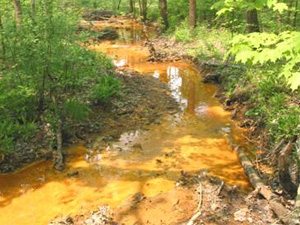
[miningmx.com] – MINING houses not only failed to tick the BEE ownership box of the mining charter, but also fell short of meeting environmental sustainability targets when the audit results of the charter was announced last week.
“Except for the analysis of samples in South Africa, the performance [of mining companies] on sustainable development has not met expectations,’ mines minister, Ngoako Ramatlhodi, said at the time.
But the failure to meet objectives on the environmental front shouldn’t stymie mining companies applying which for new environmental licences under the amended National Environmental Management Act (NEMA), promulgated in December.
The newly promulgated NEMA now provides for a single environmental authorisation, issued by the Department of Mineral Resources (DMR) for prospecting and mining and with a 300-day time frame, which many believe will speed up the licencing process.
“The purpose of this law,’ said Garyn Rapson, a senior associate at Webber Wentzel, “… is to actually make it easier for mining companies to get their licences.
“Provided everything pans out the way government has planned, it shouldn’t be more difficult, but in fact, more streamlined.
“Getting your licence is, however, just one aspect of meeting your sustainable obligation. Other things like best practice also contribute to sustainability,” he said.
Generally-speaking, NEMA should make life easier for mining companies, said Wessel Badenhorst, a director at Hogan Lovells.
“We should bear in mind that the purpose of NEMA is to create a single department that oversees the issuance of all these licences, which should bring about a more effective regime.’
Matthew Burnell, a partner in the Johannesburg office of Fasken Martineau, specialising in environmental and pharmaceutical law, also doesn’t believe NEMA will have a significant impact on the issuance of environmental licences. “In fact, I think it will speed up the process, because of the 300-day time line.’
The Centre of Environmental Rights (CER) is, however, cautious about the quality of the licences that will be issued by the DMR.
“Because the DMR is the issuing authority of environmental licences, mining companies shouldn’t struggle to obtain them, said Marthan Theart a lawyer at the CER.
“However, the DMR is notoriously poor at properly assessing the environmental impacts of mining.
“Furthermore, the so-called “streamlined’ time-frames for obtaining mining rights will undoubtedly mean that the quality of environmental authorisations is poor.
“Environmental impact assessments require complex technical analysis of the environmental and social impact of mining. By constantly reducing the time-frames within which authorisations must be granted, the long-term sustainability of the industry is continually undermined.
“The streamlining of licence applications may hit hurdles when poorly granted licences are appealed by individuals or groups who will be adversely impacted by mining. Such appeals are decided by the Minister of Environmental Affairs.”
Compliance with water regulations is a much bigger challenge, said Burnell.
“It has taken anything from six months to six years to get a water licence from the department of water and sanitation and many mining houses are operating without water licences.”
In February, the Department of Water and Sanitation (DWS) published draft regulations proposing a much shorter turnaround time of 300 days for the issuance of water licences.
The new water licence time-frames could be a general improvement, but there are questions around the implementation thereof, said Theart.
“A mining company will have 100 days to submit its application which is a very short time-frame, while the department has 143 days to reach a decision. As with environmental authorisations, pushing for a decision within a shorter time-frame will inevitably further compromise the quality of licences.’
The DWS has shown “limited willingness’ or ability to grant effective licences within any time-frame. “This has resulted in widespread non-compliance in relation to mining and water,’ Theart said.











